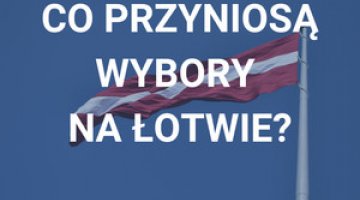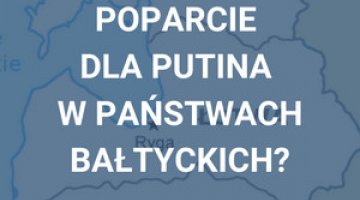Analyses
The election in Latvia - a victory for the ruling centre-right
The winner of the parliamentary election held in Latvia on 2 October was the ruling centre-right party Unity whose leader, the acting prime minister, Valdis Dombrovskis, will again be entrusted with the mission of forming the government. The left-wing Harmony Centre backed by Russian speaking inhabitants of Latvia and led by the mayor of Riga Nils Usakovs took the second place and will probably remain in opposition.
Five parties will form the 100 seat parliament. The largest number of seats will be held by the following parties: Unity - 33 seats, Harmony Centre - 29 seats and the Union of Greens and Farmers linked with the mayor of Ventspils - 22 seats. The extreme-right alliance All for Latvia/Fatherland and Freedom and the party created by Latvian oligarchs For a Better Latvia will each have eight seats. The Unity party is likely to form a coalition again with the Union of Greens and Farmers. Although Dombrovskis has offered Harmony Centre seats in the government (one ministry), this party that represents the majority of Russian-speaking constituents will probably remain in opposition. A more radical party of Latvian Russians - the Union for Human Rights in United Latvia - lost its parliamentary representation.
Unity achieved success among other factors thanks to the popularity of Prime Minister Dombrovskis who, unlike many other leaders of political parties, is seen as a politician that stands outside business circles. The success of Dombrovskis's party is also a result of Latvia's improving economic situation and means that inhabitants of this country support the austerity policy that is being implemented by the government of Dombrovskis. Thanks to this policy the state's finance has been stabilised and the budget deficit has been limited according to the recommendations made by the International Monetary Fund (IMF). Despite the costly campaign and support given by part of the media, the party For a Better Latvia that held populist slogans of reducing taxes and renegotiating the loan agreement with the IMF did not receive vast support. <pas>




